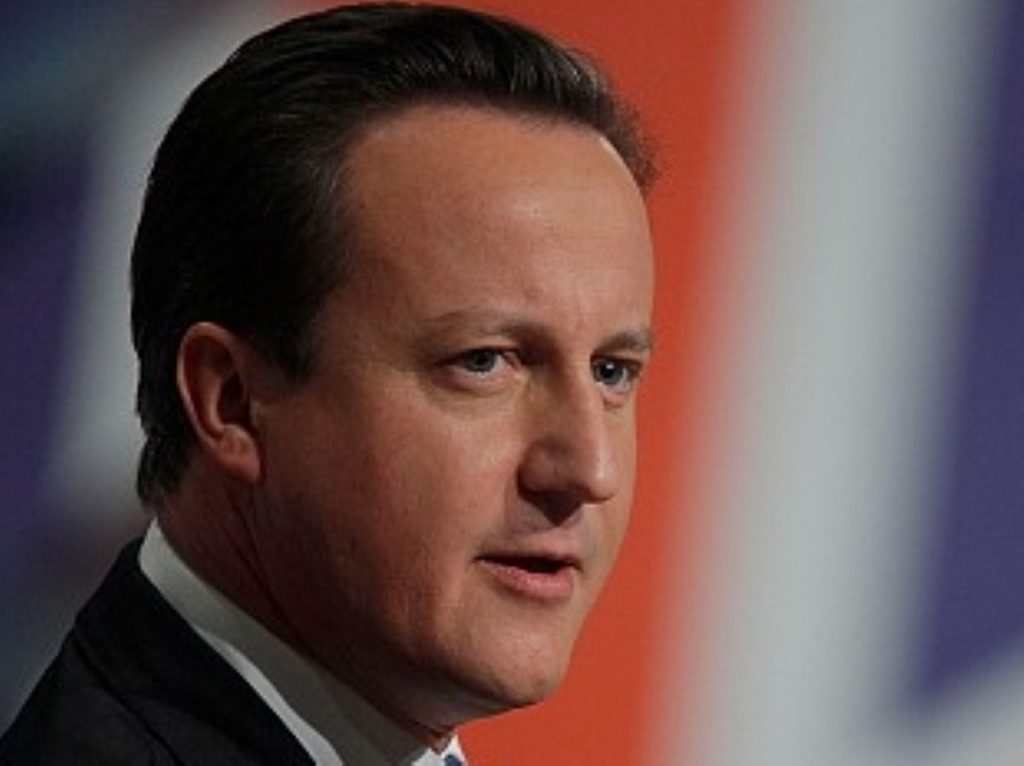Coalition’s immigration truce collapses
Vince Cable has accused the prime minister of “inflaming extremism” ahead of a David Cameron speech on immigration.
Mr Cameron said he would leave “no stone unturned” in his bid to reduce immigration down to 1980s levels in a major speech this lunchtime in Hampshire.
His bid to outline the government’s approach was overwhelmed by comments from the Liberal Democrat business secretary, who was quoted as saying Mr Cameron’s arguments were “very unwise”.


“The reference to the tens of thousands of immigrants rather than hundreds of thousands is not part of the coalition agreement, it is Tory party policy only,” Mr Cable told the BBC.
“I do understand there is an election coming but talk of mass immigration risks inflaming the extremism to which he and I are both strongly opposed.”
Comment: Never be ashamed of immigrant Britain
Comment: We must control and limit immigration
Mr Cameron directly contradicted Mr Cable’s claim that the contents of his speech were not official Lib Dem policy, however.
“The policy is agreed by the coalition. It is coalition and government policy and is being put in place right across the board,” he insisted.
The prime minister later added: “This speech is Liberal Democrat policy.”
Mr Cable, who had lobbied hard to ensure that the coalition’s immigration clampdown does not affect companies’ ability to transfer highly-skilled workers to the UK, said much of non-EU immigration “is crucial to British recovery and growth”.
“That’s why the Cabinet collectively agreed to support British business and British universities by exempting overseas students and essential staff from the cap on non-EU immigration,” he added.
The prime minister refused to acknowledge Mr Cable’s comments, explaining that although “coalitions do mean you have discussions and arguments within your government” the Lib Dems had agreed to implement the immigration clampdown.
Comment: The pitfalls of our points-based immigration system
Comment: The immigration balancing act
“Yes, the Conservatives had spoken about this issue a lot in opposition,” Mr Cameron added.
“We did make sure that in that coalition agreement were serious policies that would get immigration under control.”
In his speech, Mr Cameron argued that Labour’s policies had caused some communities to feel “discomfort and disjointedness” because of poor integration.
But Mr Cable’s remarks shifted the focus away from the opposition towards the coalition’s internal tensions. The Lib Dems fiercely disagreed with the Tories’ insistence that immigration should fall to under 100,000 before the 2010 general election.
Analysis: Immigration is a convenient coalition punchbag
Lib Dem deputy leader Simon Hughes characterised the coalition as a “practical business relationship” which would only last five years in a well-timed speech in Bradford today.
“It is an agreement for actions we have started, and so we’ll finish. To do otherwise would be irresponsible,” he said.
Cameron unyielding over ‘tens of thousands’ target
The Conservative leader offered a comprehensive defence of his party’s approach to immigration in his speech, arguing that the coalition was on the right track in tackling student immigration from outside Europe, illegal immigration and reforming the points system for migrant workers.
“This time last year, we said we would listen to people’s concerns and get immigration under control,” he said.
“Today I can confidently say that we are getting there.”
He accused the Labour government of having helped to “inflate the debate” by suggesting concerns about immigration were racist. This, Mr Cameron argued, allowed extremists to claim mainstream politicians were not listening to ordinary people’s concerns.
“I want us to starve extremist parties of the oxygen of public anxiety they thrive on and extinguish them once and for all,” he added.
“Above all, I want to get the policy right: good immigration, not mass immigration.”
The prime minister flagged up the benefits of immigration, citing its positive economic and cultural impact. But he also acknowledged “the largest influx of people Britain has ever had” and the “real pressures”, including social ones, this has placed on Britain.
“When there have been significant numbers of new people arriving in neighbourhoods, perhaps not able to speak the same language as those living there, on occasions not really wanting or even willing to integrate – that has created a kind of discomfort and
disjointedness in some neighbourhoods,” he said.
The coalition’s approach to immigration has proved controversial, after imposing a cap on non-EU migrants which some experts have warned will hurt the economic recovery.
A significant clampdown on the number of international students coming to Britain could force tuition fees up further, the Institute for Public Policy Research has argued.
Mr Cameron rejected these claims, insisting that the points-based system is being fundamentally changed “so it is truly geared to the needs of our economy”.
He repeated his suspicion of “abuse” of student visas, citing a number of examples which showed that “the potential for abuse is clearly enormous”.
The coalition is unlikely to meet the coalition’s net migration target in 2011, when the total is expected to exceed 200,000. But the prime minister said the steps now being taken will eventually succeed in more than halving net migration, ending the issue’s “front rank” status in British politics.
“Yes, Britain will always be open to the best and brightest from around the world and those fleeing persecution,” he concluded.
“But with us, our borders will be under control and immigration will be at levels our country can manage. No ifs. No buts. That’s a promise we made to the British people. And it’s a promise we are keeping.”









